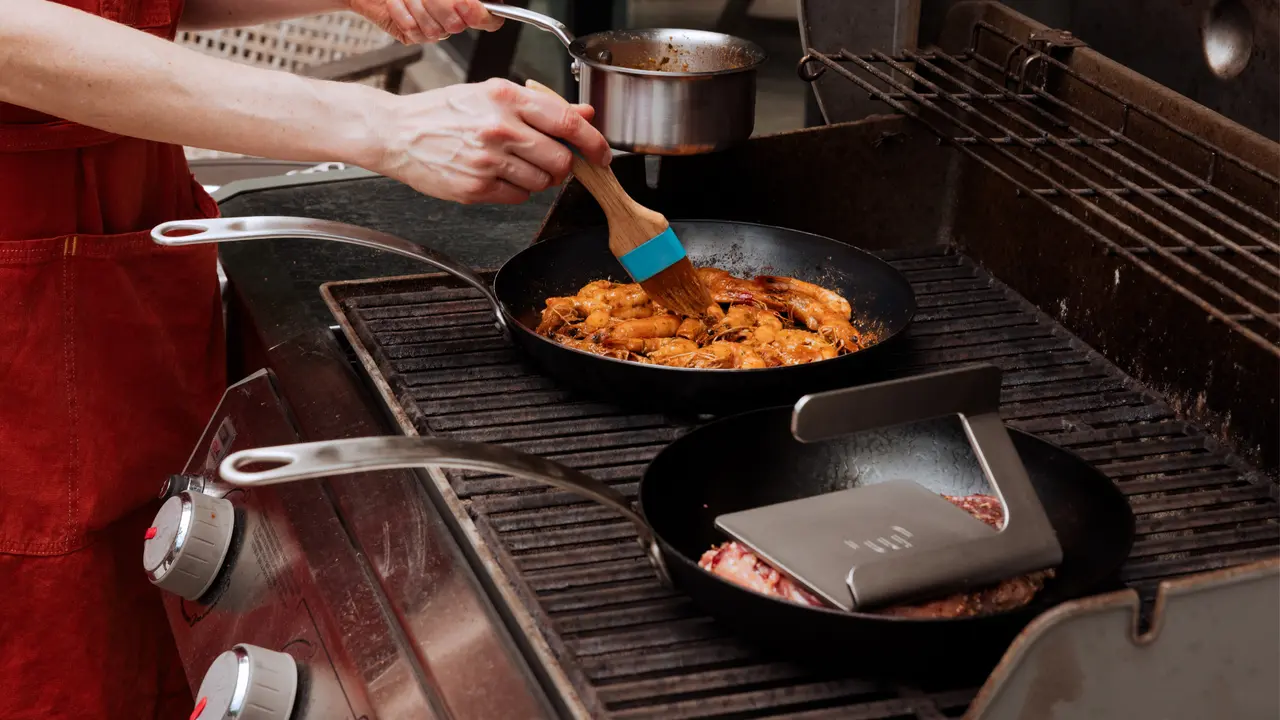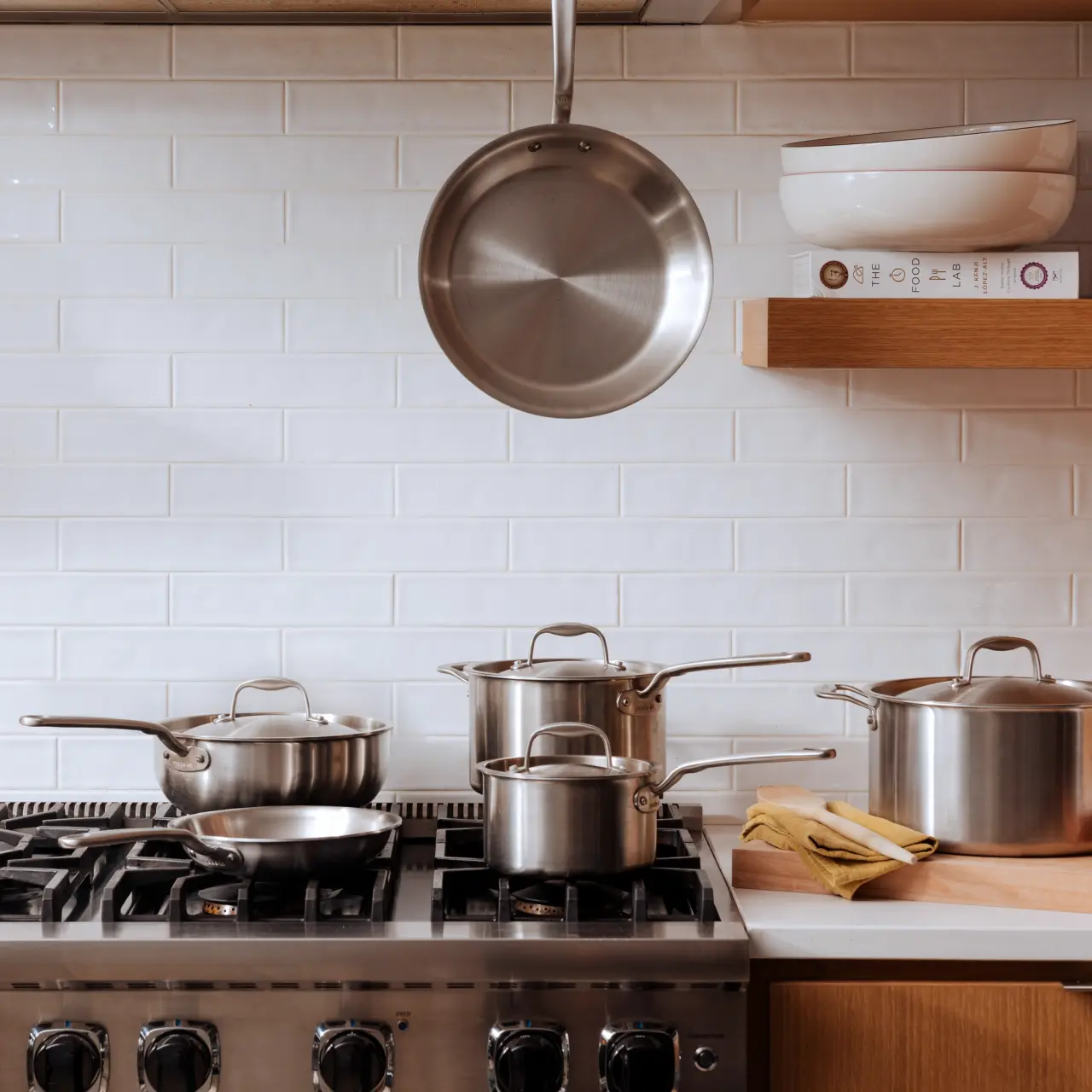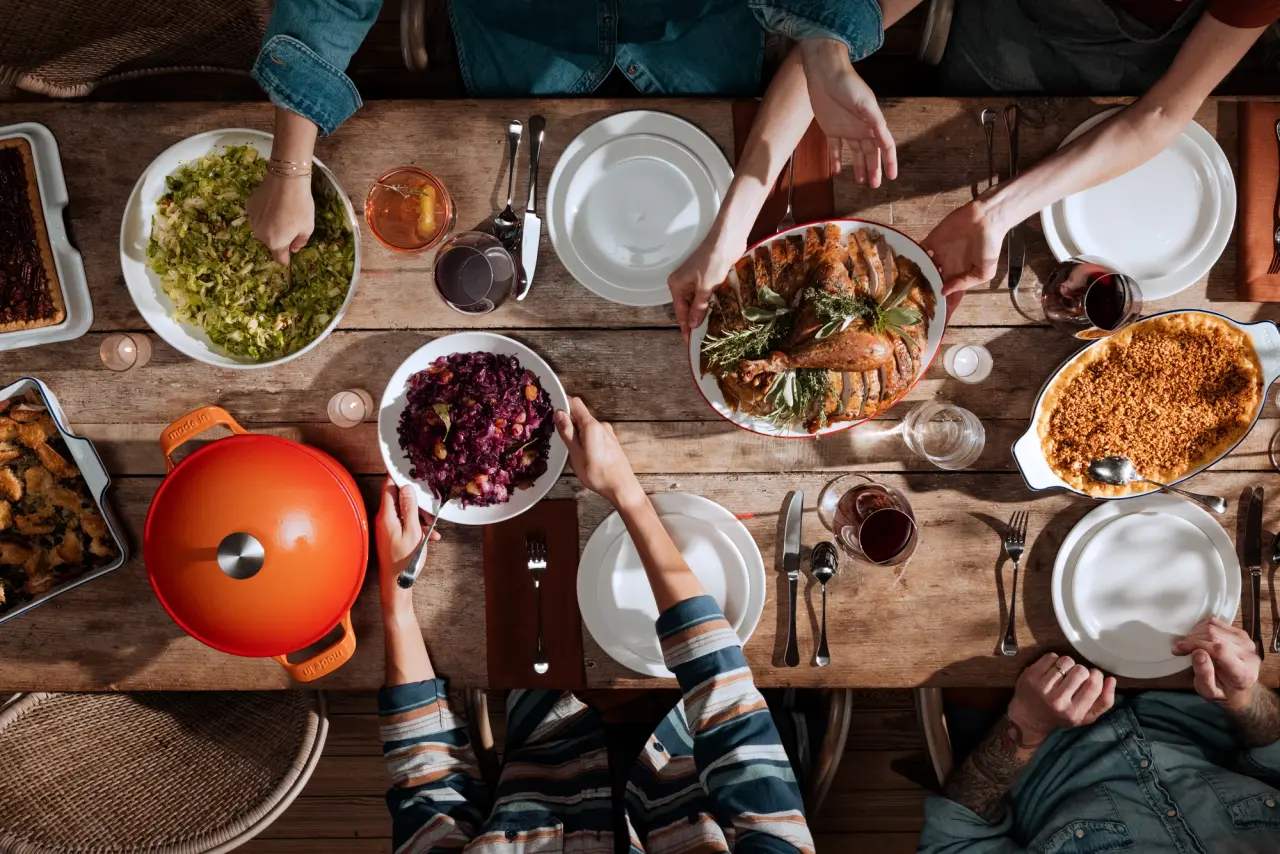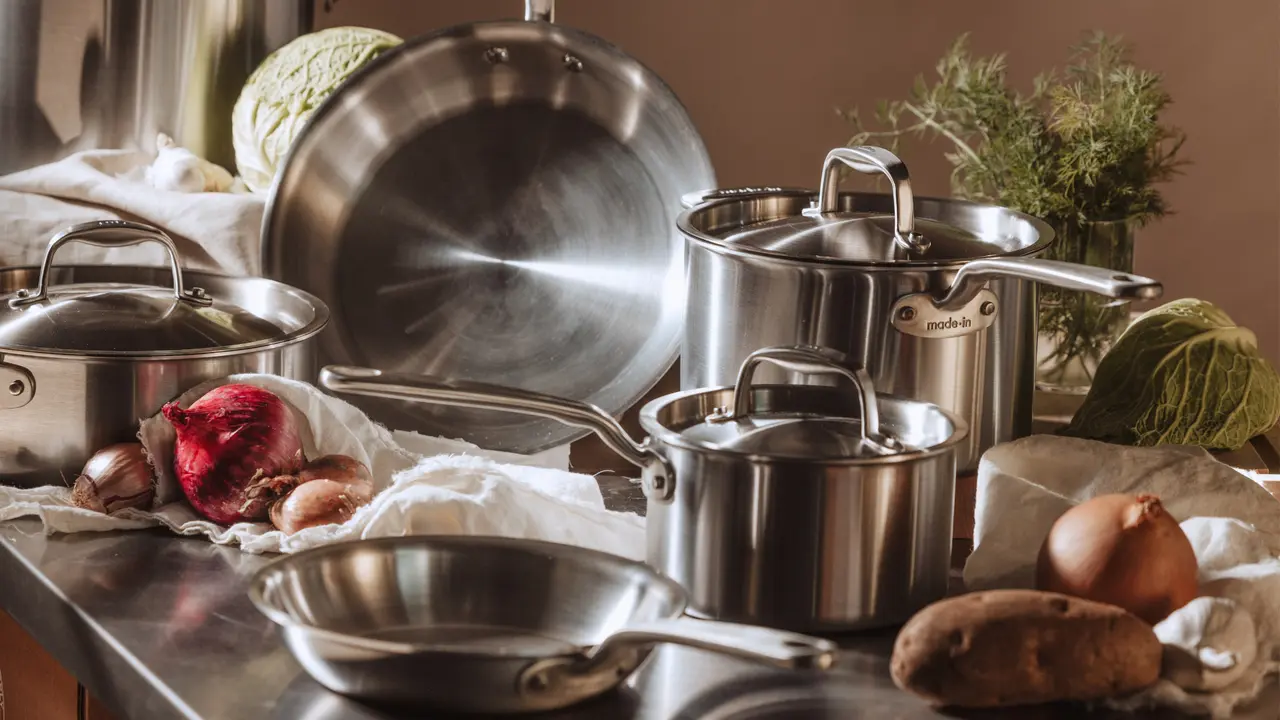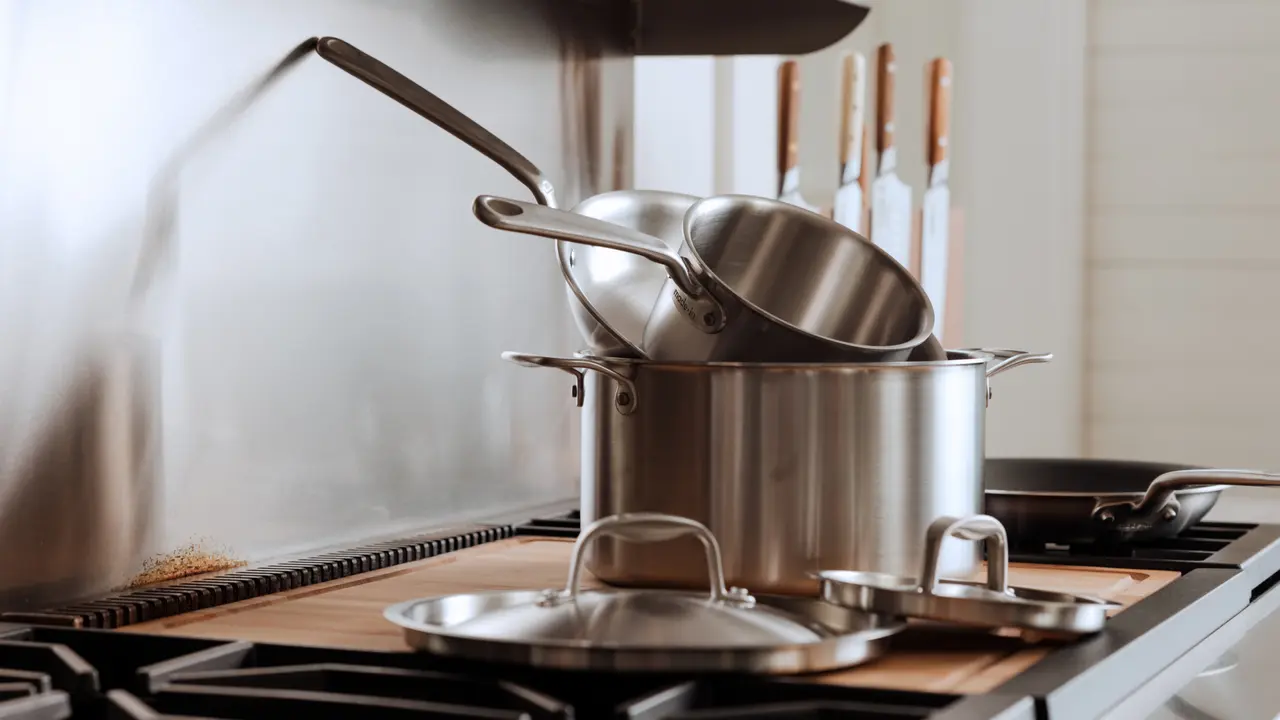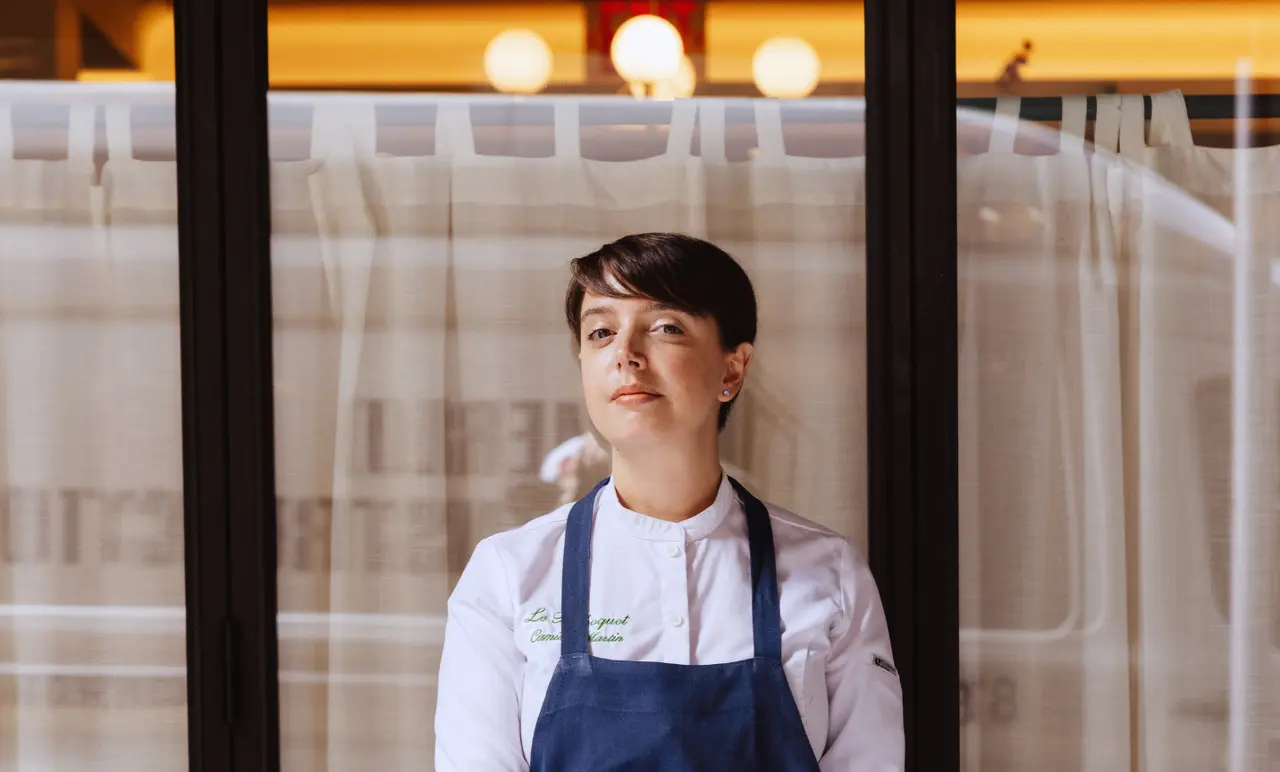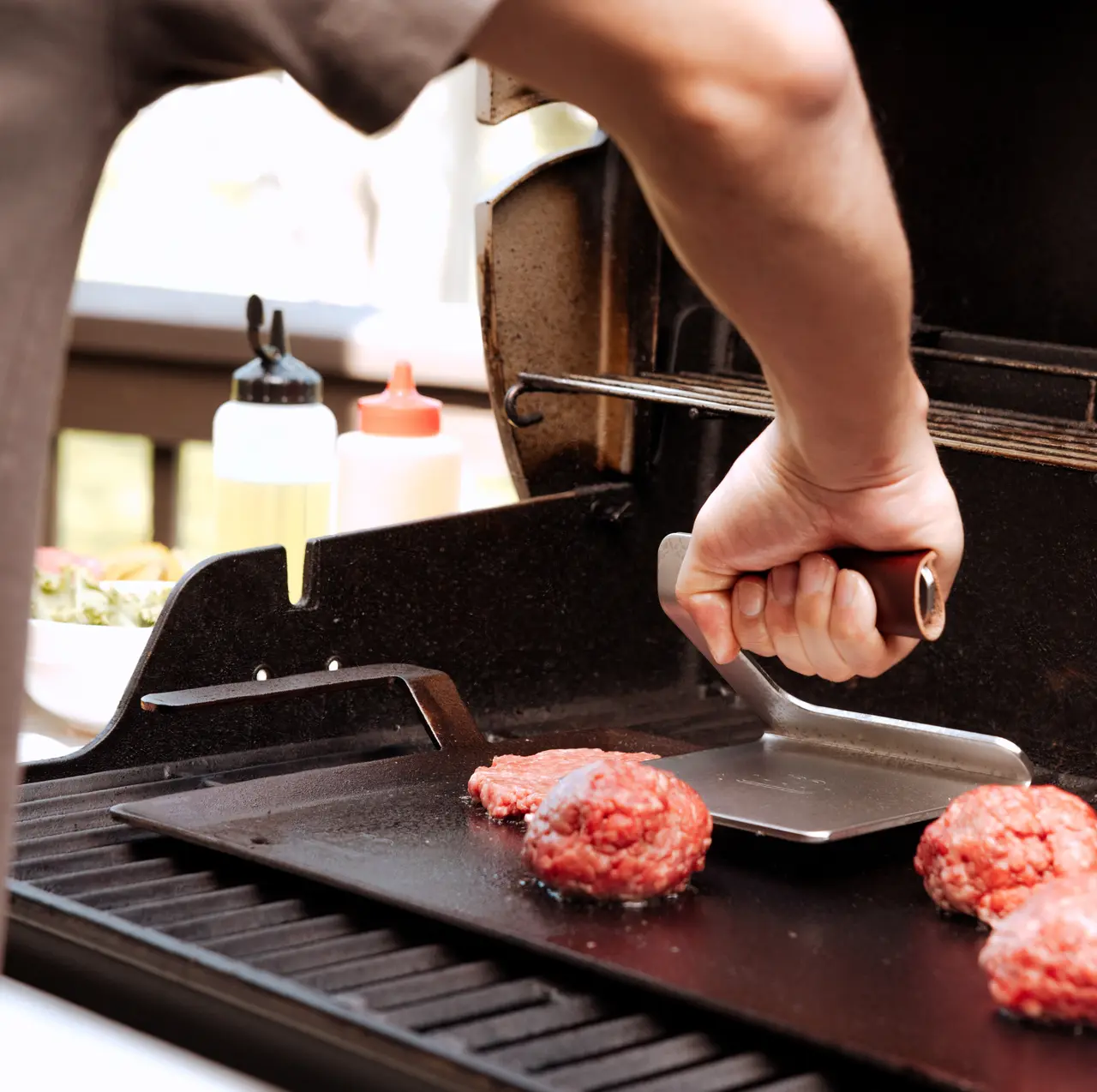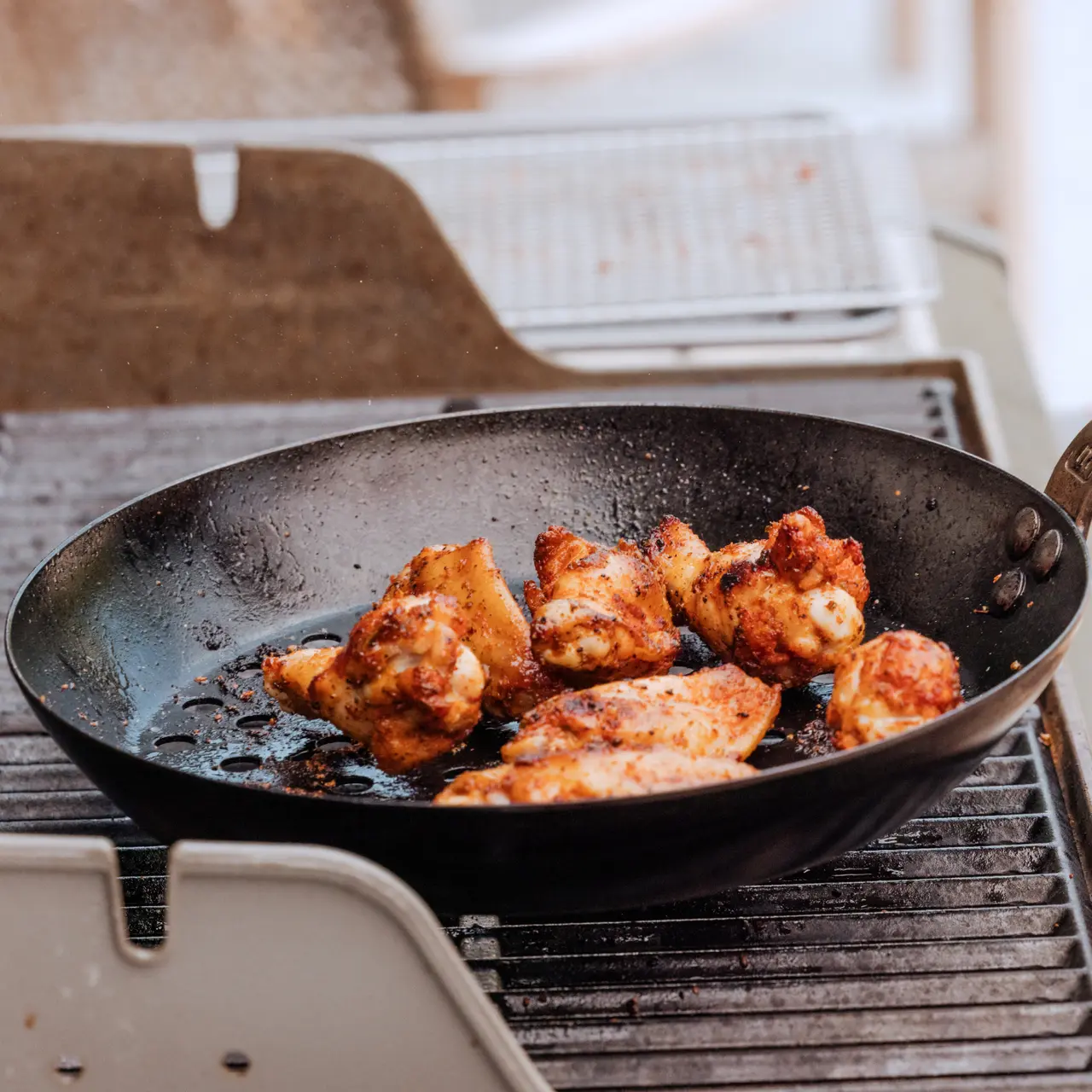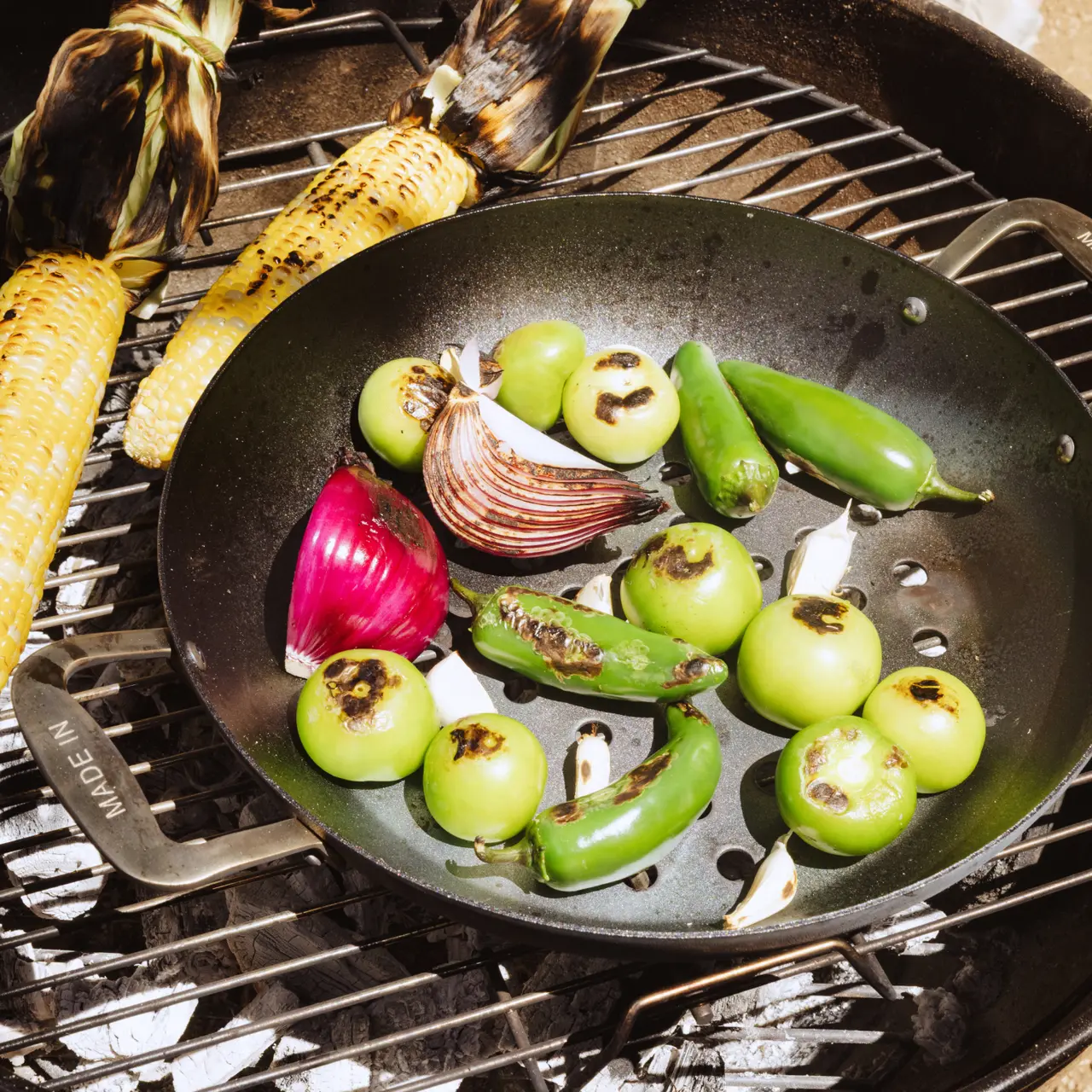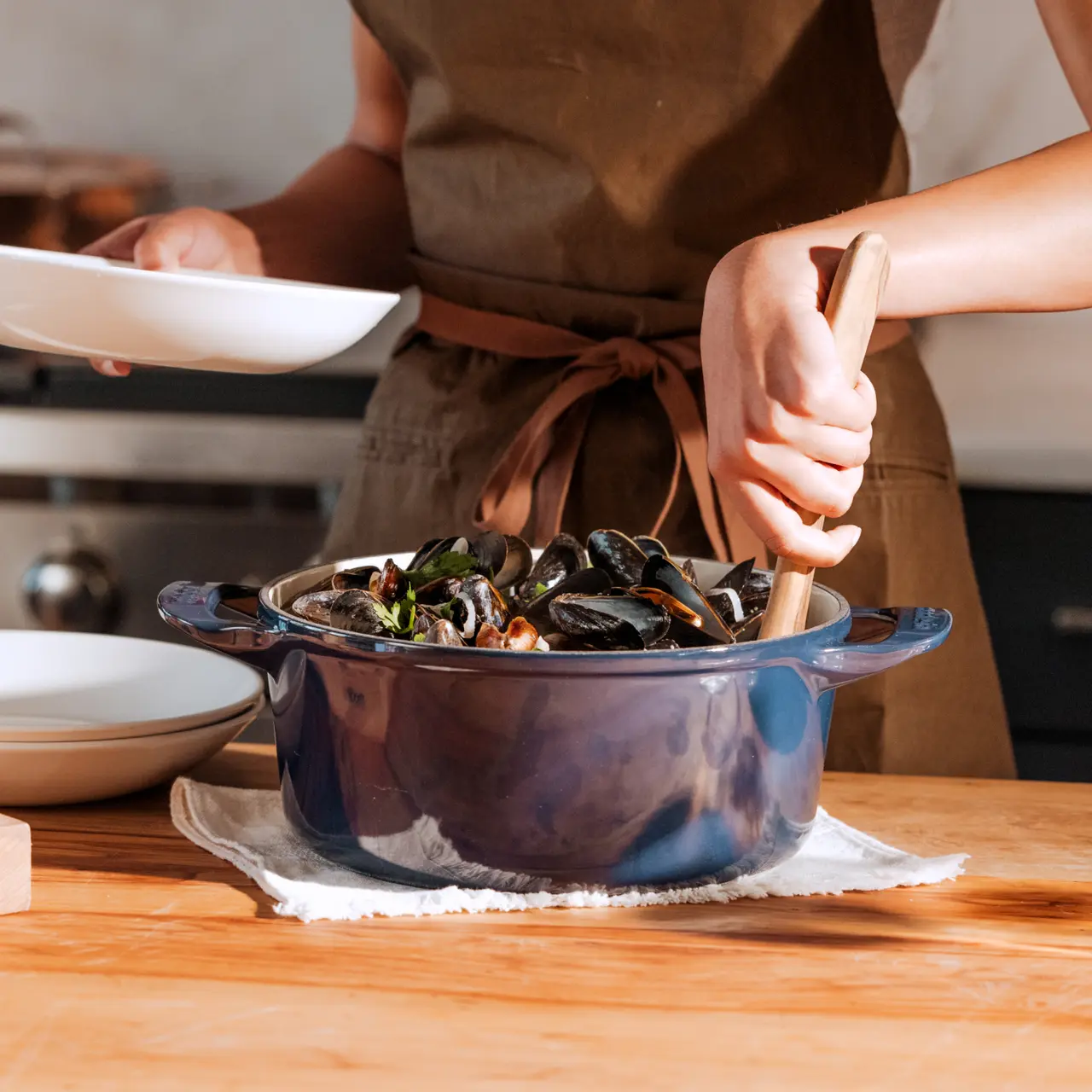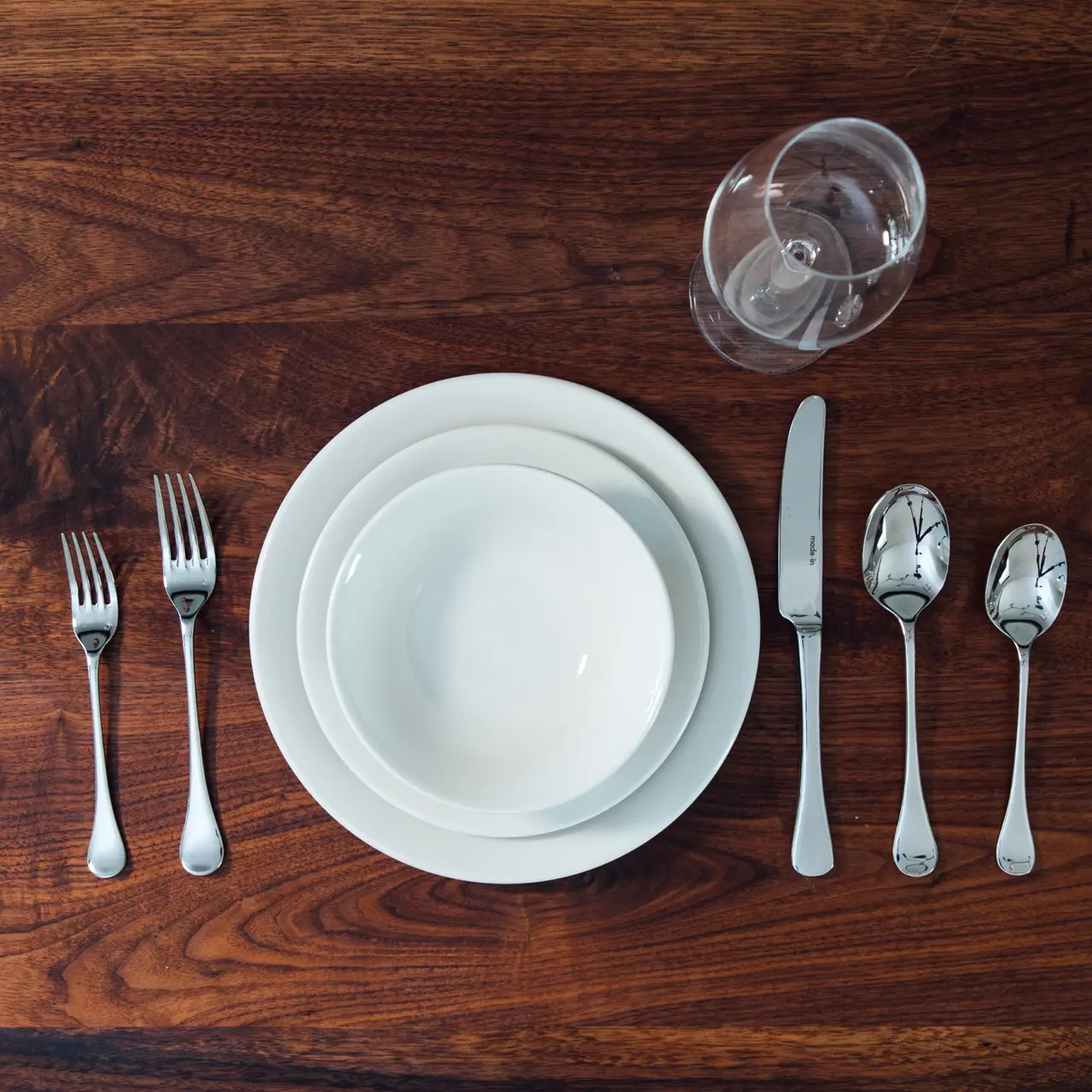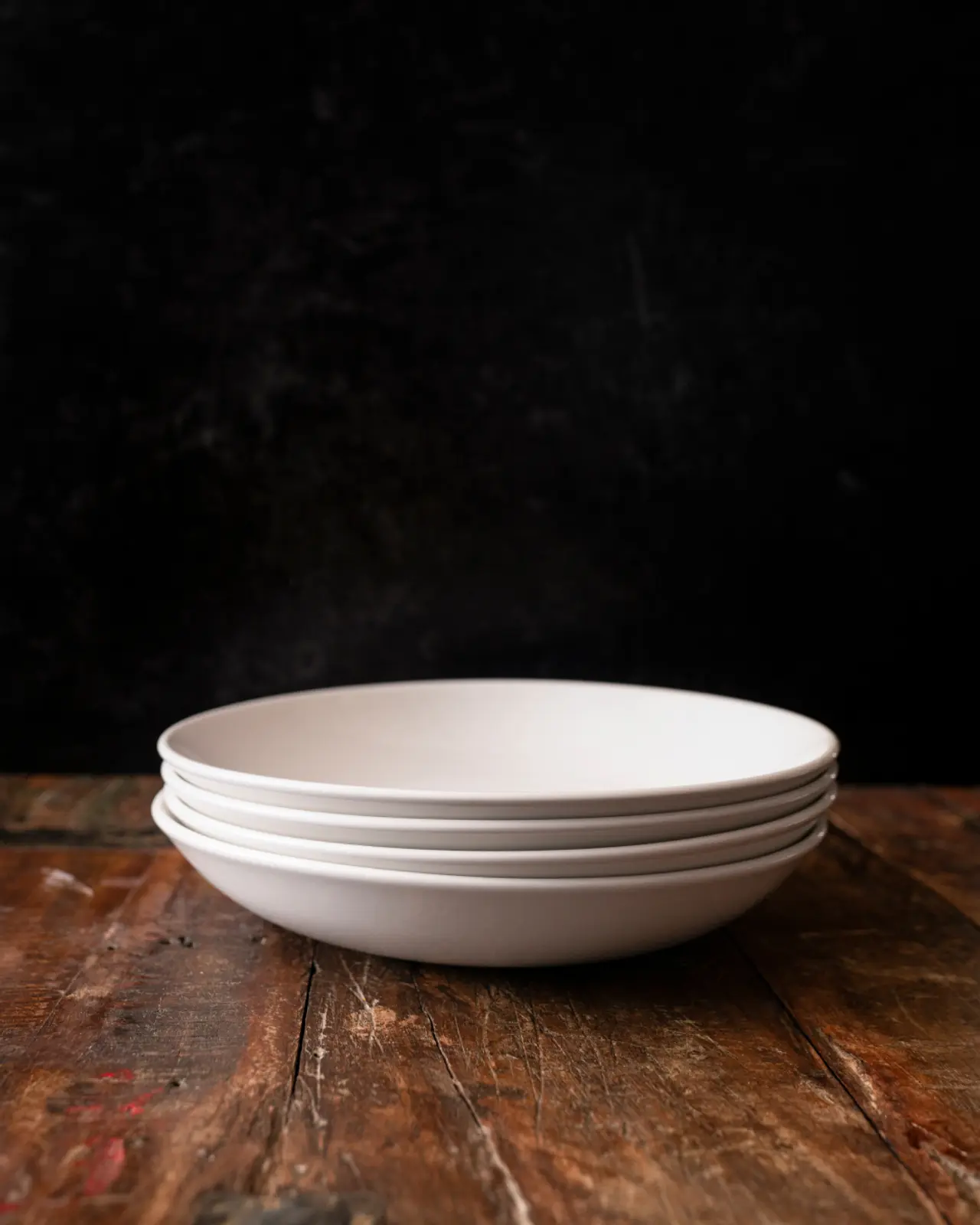French cuisine is known for white coats, chef hats, and special occasions. How did this region’s food rise to the top? Read on to get the story straight.
If you love cooking, eating and exploring the various cuisines of the world, then you know that France is in a stratosphere all its own. Practically every popular chef is professionally trained in French culinary skills. Likewise, some of the most revered restaurants across America—and indeed the globe—serve up coq au vin, beef bourguignon, and soufflé on the regular.
Shameless plug: be sure to check out our article on the most iconic French dishes you can make at home!
So, how did this particular country come to dominate the culinary scene? Why do the most iconic chefs tend to hail from this relatively small region? What is the Michelin star system? And to become a master chef, do I really have to ship off to a French culinary school? The origins of this rich, flavorful cuisine are complex, but one thing is simple—the food is absolutely scrumptious.
Let’s break down the story of how France finagled its way to the top of the foodie pyramid. Along the way, we’ll give you a deeper rundown of French schooling, restaurant ratings, famous French chefs and so much more. So strap on your hat, grab a chef coat, put on your best accent—and let’s get started!
Why is France synonymous with cuisine?
The origins of French cuisine are vast and varied. With a history steeped in centuries of European culture, France is known for churning out chefs with exceptional technique and a flair for rich, decadent flavors. But beyond their sensational skillsets and age-old recipes, French cooks also have access to a wide array of fresh, local ingredients. France’s massive catalog of homemade cheeses alone will blow your mind (Have you read our French cheese article?).
Whether it’s the farm-raised beef of Bourgogne, fresh-off-the-boat seafood from Normandy or Brittany, or Provence’s medley of perfectly ripe vegetables in their famous ratatouille, there’s no denying the country’s abundance of delicious ingredients. This can be attributed to France’s versatile, food-friendly climate. Still, even home chefs know that ‘good’ ingredients don’t equate to an award-winning plate.
Food historians also suspect that religion and politics—as with everything else in life—played a huge part in France’s claim to culinary fame. With a strong Catholic presence from the 14th century through the 18th century, French people embraced an attitude of indulgence not shared by their neighboring Protestant countries. Rich French rulers would eagerly feast on good food and wine. Eventually, everyday French folk would follow suit, treating themselves to multi-course dinners and stimulating their palates with sophisticated ingredients seldom used in Germany, Italy, Spain, and other nearby locales.
This ‘gourmet’ approach to eating lingered long into the 20th and 21st centuries. Today, everyone uses the famous ‘bon appétit’ salutation, and although religious rifts are hardly a relevant issue, France remains the premier culinary hotspot across Europe and beyond.
Demystifying the Michelin Star System
Most people are pseudo-familiar with the concept of Michelin Star rankings. In a nutshell, a fancy panel of anonymous experts ranks restaurants from all over the world, awarding only the best chefs with the elusive ‘three star’ review. Unlike Yelp, TripAdvisor and Zaggat, public eaters get zero say. Here’s a breakdown of what each ranking means. We apologize in advance if the translations give you nightmares of high school French class:
- 1 STAR – A very good restaurant in its category (Une très bonne table dans sa catégorie)
- 2 STARS – Excellent cooking, worth a detour (Table excellente, mérite un détour)
- 3 STARS – Exceptional cuisine, worth a special journey (Une des meilleures tables, vaut le voyage)
So, what does this have to do with France? Legend says, at the turn of the 20th century, the Michelin tire company put out a guidebook for vacationing across France, replete with must-see attractions (AKA must-eat restaurants). Their French marketing scheme resulted in a culinary tradition now spanning 120 years.
Interested in the system? Check out our full article on the Michelin Stars mystique.
School is now in session
With the booming popularity of Top Chef, Master Chef and other food-themed programming, American cooking schools have seen a huge surge in enrollment. But if you want to compete with today’s top players, it’s generally known that French culinary schools are the ‘Harvard’ of cooking programs. Yes, you can go to a good school in New York, Los Angeles or another big city. But it’s not exactly the same as the stringent training chefs receive across the pond.
Although every French Institute is different, stories abound of cold, drill-sergeant-like instructors whipping their students into shape in the toughest ways possible. While American universities pass hundreds of students a semester, French schools will expel you if you fail to master certain techniques. Whether it’s making sauces, stews, cakes or pastries, students have to prove they have what it takes to move up to the next level.
Perhaps this aggressive educational approach is what sets France apart. Not to mention, students have access to some of the most renowned French cooking gurus in the world, which also helps.
So, who are the most iconic French chefs?
While most famous French food masters hail from France itself, there are others equally celebrated for their French cooking skills. Here’s a quick list of today’s biggest names associated with the world’s most reputable cuisine.
Michel Troisgros
Named best chef in the world in 2018, Michel Troisgros comes from a family with deep roots in the cooking world. His 3-Michelin-Star hotel/restaurant, Troisgros, has trained many of the biggest names in the culinary industry.
Jean-Christophe Novelli
Revered as a top French celebrity chef, Jean-Christophe Novelli started making pastries as young as 14, and is now the owner of his own culinary school called ‘Novelli Academy.’ Although he resides in England, Novelli’s technique is thoroughly inspired by French tradition.
Eric Ripert
Easily recognized by the Food Channel obsessed, celebrity chef Eric Ripert is easy on the eyes—and a master chef in the kitchen. As owner of Le Bernardin restaurant in New York, Ripert’s culinary style comes straight from Antibes, France, where he was born.
Yannick Alleno
Showing off his 3 Michelin stars since 2008, Yannick Alleno is known for his gastronomic restaurants and bistros across France, Hong Kong, Dubai and beyond.
Julia Child
We know. She’s not exactly French, hailing from humble beginnings in Pasadena, California. But PBS icon Julia Child is credited for bringing French culinary influence to the American masses throughout her books and television work. It’s worth checking out Child’s French connections.
Feeling that much smarter? Stay with Made In for more French influence!

